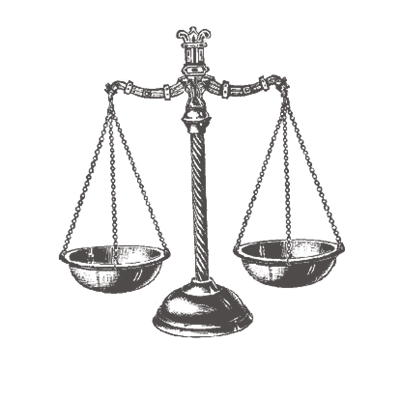Substitute performance and party substitution in a public procurement contract
A party substitution in a contract concluded under the Public Procurement Law is possible if the contracting authority explicitly provided for the possibility of such a change in the contract announcement and specified the conditions for such a change. Whether a contractual provision authorising the contracting authority to entrust the performance of the contract to a third party (substitute performance) can be regarded as a review clause allowing for party substitution is an interesting issue in public procurement practice.

Can entrapment help to prosecute companies?
A new Corporate Liability Act which is currently before the Polish Sejm will put criminal law institutions in a new perspective. Certain instruments that were seen as appropriate only with respect to individuals will have to be redirected to be deployed in the case of corporate entities. Once the new laws take effect, corporate entities will be the focus of attention of law enforcement agencies. The new approach will affect among other things police entrapment operations (controlled handing over of a bribe), at the moment usually used with regard to businesspeople.

Tic-Tac prevails in dispute over MIK MAKI dragee container
In a judgment of 6 March 2019, the Court of Justice of the European Union gave its final ruling on a case surrounding invalidation of a community design presenting the box for MIK MAKI dragees. The invalidation was being sought by Ferrero SpA, claiming infringement of its registered figurative mark for Tic-Tac packaging.

Zatrzymanie osoby – poradnik o prawach i obowiązkach
W ostatnim czasie media wielokrotnie informowały o zatrzymaniach prezesów, członków zarządów, dyrektorów spółek. W przestrzeni publicznej pojawiał się wówczas szereg pytań o zasadność takich czynności, zwłaszcza wtedy, gdy sądy odmawiały uwzględniania prokuratorskich wniosków o zastosowanie tymczasowego aresztowania.

How can an investor ensure control over the construction process?
The investor is the host of a construction project and, in practice, it is the investor who decides on the wording of the agreement with the general contractor, including the contractor’s activity in execution of the project. It is the investor who decides how the construction process is organised. But investors have different preferences: they do not always want to precisely track the course of works, and that may not be feasible. Therefore, the agreement with the contractor should be tailored to the adopted model of cooperation and take into account the possible level of control by the investor of the general contractor’s activities.

Key changes proposed in waste records and Waste Database
A draft Act Amending the Waste Act and Certain Other Acts has been submitted to the Polish parliament. The proposal is designed to totally digitise the Database of Products, Packaging and Waste Management (known as the Waste Database or BDO). The proponents’ aim is also to expand the functionality of BDO so that it is also used by businesses to maintain their current waste records. This would allow the authorities to easily identify the generator and subsequent possessors of wastes.

Can a bid be selected when it is no longer binding?
If a contractor does not agree to extension of the binding period of its offer when requested by the contracting authority, the bid is rejected. However, the effects of expiration of the binding period are unclear when the contractor fails to extend the period at its own initiative. The current wording of the Public Procurement Law does not specify whether the contractor’s bid remains valid after the binding period expires.

Will there be more transactions on the pharmacy market?
There have been few transactions on the pharmacy market in Poland since 25 June 2017, when the amendment to the Pharmaceutical Law popularly known as “Pharmacies for Pharmacists” entered into force. The transactions that did occur carried significant regulatory risk. This situation may change due to a recent interpretation by the Ministry of Health. Will we witness a gradual departure from the restrictive limitations under the 2017 amendment?

Agile contracting: A slap on the wrist for lawyers
Genuine contractual disputes are always at least in some way about a gap in a contract. A dispute most often arises when parties have agreed to a meticulously drawn-up set of specific provisions and then in the course of performance a situation occurs which is not adequately addressed by those provisions. That is because the parties did not really have the situation in mind when drawing up the contract. As a result, the situation is either not addressed at all, or, more often, falls under provisions that were not really meant to deal with it.

Is subcontracting easier? The effects of the amendment of Art. 647¹ of the Civil Code two years after adoption
Art. 647¹ of the Civil Code, providing for the investor’s secondary liability for the contractor’s debts to subcontractors, was introduced into the Polish legal system in 2003. In April 2017, the parliament amended it thoroughly in adopting the Act Amending Certain Acts to Facilitate Debt Recovery. Two years after implementation, we try to answer the question whether the title of the amending act corresponds to reality and subcontractors really have a better chance of receiving payment for their work.

Guarantee of payment or guarantee of withdrawal from contract?
Art. 6491–6495 of the Civil Code is intended to ensure that the security in the form of a payment guarantee for construction works provided at the investor’s request secures timely payment of the contractor’s fee. However, one may suspect that in practice this instrument is used for a completely different purpose.

How to recover money paid directly to subcontractors?
The parliament has granted subcontractors a high level of protection. The provisions on joint and several liability are strict for the investor and often in practice mean a risk of double payment for the same thing: the first time to the general contractor and the second time to the subcontractor. Therefore, the investor should be able to recover from the general contractor the sums paid directly to subcontractors.
